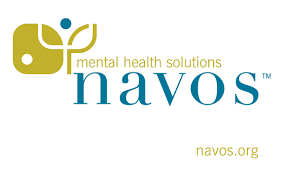Integrated Health Care for Adults with Serious Mental Illness

Grantee: Navos
Timeframe: July 2015 – June 2018 | Total Amount: $710,000
Year 1: July 2015 – June 2016. Amount: $250,000
Year 2: July 2016 – June 2017. Amount: $250,000
Year 3: July 2017 – June 2018. Amount: $210,000
The Integrated Health Care for Adults with Serious Mental Illness program will address the physical health disparities of individuals suffering from serious mental illness (SMI) through a comprehensive, integrated approach to health. Funding will primarily be used for components of care coordination and wellness services not covered by Medicaid reimbursements for primary care. The goals of the program are to: 1) move vulnerable adults with significant health disparities from illness and isolation to wellness and community; and 2) develop an integrated health care model that is collaborative, data-driven, effective, financially-sustainable and replicable. Individuals with SMI receiving integrated care are expected to show improvement in health outcomes and a reduction in emergency department visits.
At Navos Mental Health and Wellness Center, clients have access to mental health services, primary care, a pharmacy, chemical dependency treatment, domestic violence services, housing, supported employment, and wellness programming in one location. Primary care is provided through a partnership with Public Health—Seattle & King County (PHSKC). Care is provided in a collaborative manner with systematic interaction between staff of both agencies. The Nurse Care Manager serves as the primary liaison between behavioral and primary care providers. She conducts regular case conferencing meetings with Navos care teams to ensure collaboration on all aspects of patient care. A
These funds will increase the FTE of care coordination and wellness staff from 0.5 to 1.0, allowing additional patients to receive care coordination services. Three additional wellness groups in collaboration with Navos’ behavioral health providers and peer educators will be provided. These classes will be offered using the evidence-based Chronic Disease Self-Management Program Curriculum from Stanford. Groups will be developed based on patient needs and trending health issues, but will likely include diabetes, hypertension and chronic pain.
Additionally, Navos staff will also analyze data from the EDIE (Emergency Department Information Exchange) system in an effort to reduce potentially avoidable emergency room usage. Staff will develop a patient education campaign around same-day appointment availability, after-hours resources, and urgent care options. The education materials produced will include a handout and posters for exam and consult rooms. They will look at each patient’s utilization patterns and create individually-tailored care plans around self-management and avoiding triggers for acute physical and mental illness episodes. Staff will then review EDIE data to assess change and the clinical team will create a revised action plan based on results.
About Our Grantee
Navos
The mission of Navos is to transform the quality of life of people vulnerable to mental illness and addictions by providing a broad continuum of care.